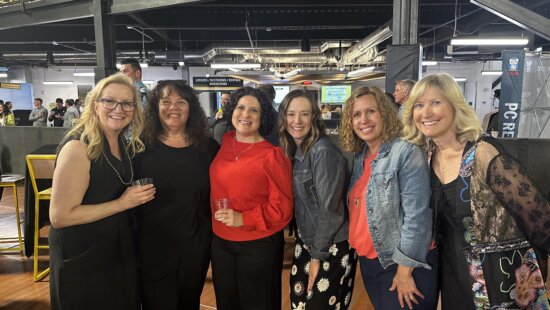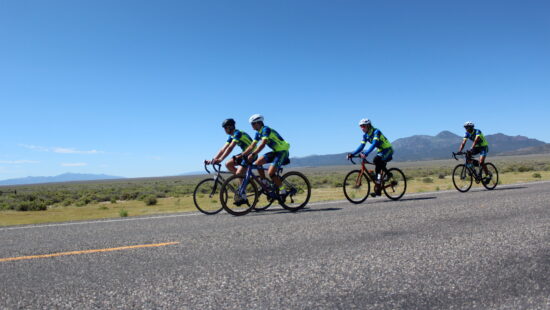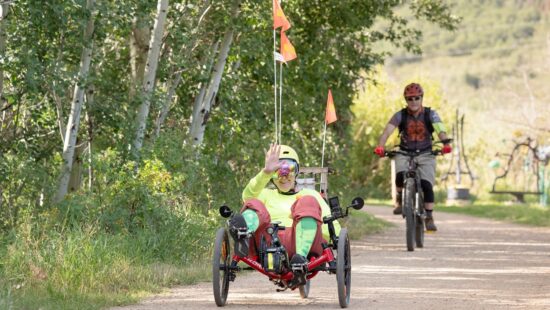NonProfit
The great Park City nonprofit office space race

Park City's nonprofits are a vital part of the community and are struggling to find much needed office space, and at a reasonable price. Photo: Michele Roepke
PARK CITY, Utah. — Maybe you’ve worked for or volunteered for one, and you’ve most likely benefitted from one, either directly or indirectly: nonprofits. Residents and visitors generally benefit from a plethora of nonprofits in Park City. Running a nonprofit isn’t a simple endeavor, but one struggle many would never think about is finding and maintaining office space.
In Park City, there’s no shortage of philanthropy, but there is a shortage of efficient, adequate commercial spaces.
Christine Coleman is the Vice president of Communications and Marketing for the Park City Community Foundation (PCCF), which provides a clearinghouse of sorts for the robust list of Park City nonprofits. Under its administrative umbrella is the Solomon Fund. PCCF runs the nationally-modeled Live PC Give PC, an annual fundraising day. In 2021, 125 nonprofits participated.
“Very lucky” is how Park City Education Foundation (PCEF) Associate Director/Communications and Development Jennifer Billow describes its situation. PCEF has not only been in its offices for many years but, bonus, it’s close to the clientele it serves.
Nuzzles and Co. and the Mountain Trails Foundation are two well-known Park City entities. Nuzzles is on the “lucky” list meaning the existence of a donor, sponsor, or founder helped them find spaces creatively through discounted rent or shared space. Nuzzles has been in place in Kimball Junction and Brown’s Canyon for many years.
For the last few years, Mountain Trails (which provides trail use and maintenance to the community) was part of a conglomerate working out of the self-titled ‘Club Med’ building along with Summit Land Conservancy and Youth Sports Alliance (YSA).
‘Club Med’ formed when the Park City Medical Clinic vacated its blue building and the trio of nonprofits was allowed to move in. Using exam rooms as offices was less than ideal, but when the Park City government afforded them a discounted rental rate and free rent when the pandemic hit, they were thankful and thriving.
The building was then bulldozed, and the race for new office space was on. Since, Mountain Trails has recently found a new space. But many nonprofit heads have described the time-consuming search in Park City as depressing, super expensive, and very limited.
Although all three Club Med organizations commented that they reaped unexpected benefits like instantaneous idea sharing and problem-solving, but they knew finding adequate space moving forward wasn’t a viable option.
Cheryl Fox, Co-founder and Executive Director of Summit Land Conservancy (SLC), says of its new office,
“The space is tight when all of the staff is in the office, but we’ve worked on flex schedules, so we make the best use of our space. Providing professional, clean, well-lighted office space is not ‘optional.’ Our work requires bright, professional problem solvers. Treating them like third-class citizens because we work for a nonprofit is denigrating and contributes to burnout, disillusionment, and ultimately the loss of good people.”
Emily Fisher, Executive Director of Youth Sports Alliance, recently found a new home. Literally, as its new office space is a home zoned as a commercial option, they’ve dubbed it their ‘Hoffice.’
“I dream of a nonprofit collaborative office space in town. It would be great for nonprofits to share one conference room, kitchen, storage space, printers, copiers, maybe even one administrative assistant or receptionist, accountant, bookkeeper, etc. The amount of money saved by each nonprofit could go back to the community.,” Fisher said. “However, it’s not just about economics; it’s also about idea sharing and collaboration efforts … It would be a huge game changer for the community and make a real statement about how much the community supports the nonprofits in town.”
Fisher added, “The great thing about nonprofits in Park City is how hard they hustle. They do a lot of the heavy lifting in town and deserve to have a nice, workable space to work on their mission.”
Many nonprofits share the same idea, or dream, of a shared space for collaborative efforts.
Elissa Aten, executive director and co-founder of Park City Reads (PC Reads), said, “I know some other small towns have nonprofit centers where several organizations share space and think something like this could be amazing here in Park City! An opportunity to share some office expenses, as well as to be in close proximity to share ideas, would only further strengthen our incredible nonprofit community.”
Commercial space doesn’t just involve desks and cubicles. Conference and private meeting rooms as well as storage space for sports equipment are among the needs of nonprofits.
“As a relatively new nonprofit, we did not have the funds for office space. In addition to rental expenses, we needed funds for office furniture and equipment. We primarily relied on coffee shops, available conference rooms, and library space for our meetings,” Aten said. “Unfortunately, meeting in public areas did not provide families privacy and greatly limited our availability to expand our services.”
The biggest challenge nonprofits face is delegating expenses to cover all its needs, as funding from other resources can be limited and include red tape on how money can be used.
“Our income relies on individual donations, grants, and fundraising events. While we are very grateful to all the community members and local organizations for their generosity, there are limited opportunities (locally or nationally) to obtain grants for general business expenses, such as insurance, payroll, and office space,” Aten said. “Yet, in reality, all of these expenses are needed to be able to offer the meaningful programming and services that nonprofit organizations provide.”
PC Reads is a smaller organization, but the global ones aren’t immune to the same struggles. USA Nordic, which provides Olympic-level ski services, finds similar situations in either fitting equipment and employees in impossibly small office spaces or carving out places where offices weren’t necessarily meant to be.
One Parkite whose seen it all in this sector is Shelley Gillwald. Currently, at the helm as Executive Director, Scholarships Manager and Extreme Cup Chair of the Park City Soccer Club (PCSC), Gillwald previously held positions with the Salt Lake Olympic Committee (SLOC), the National Ability Center (NAC), the the U.S. Ski and Snowboard Team, and Mountain Town Music.
“After five years operating out of my family room, with boxes of soccer balls, worn cleats, and used uniforms piled around my house, not to mention the car not fitting in the garage and people stopping by seven days per week, between 8:00 a.m. and 10:00 p.m.” Gillwald said. “Out of respect for my family I had to draw the line and convince the board that the club needed an office.”
Even though her husband could relate, as he’s the executive director of Wasatch Luge.
PCSC recently found a rental space, its ‘Soccer Education Center.’
“A physical office, with posted office hours, has cut down tremendously on the after-hours engagement that existed when I worked from home. Additionally, it is much easier to engage volunteers when they don’t have to work from one’s dining room table to assist with a project,” Gillwald said. “It is much easier to establish regular staff or committee meeting schedules (and all the benefits that realizes) when you know you have an available space ready to go at any time.”
Sometimes, it comes down to the deciding factors of the nonprofit’s board whether they can afford the space, and the expense.
“The hardest part was convincing the board that adding the monthly expense of office space was a smart step. Youth sports/nonprofits operate on a shoe-string budget, so the decision to take on additional operating costs is always a tough call,” Gillwald said. “One of the biggest struggles for most nonprofits is funding overhead. That is generally not something glamorous enough to fundraise for, and very few grants fund operating expenses.”
The struggle is real for nonprofits, and the answer is more office space.
Shelley punctuates the consensus: “The administrative office has enabled PCSC to develop and strengthen our soccer community — which is why we all gravitate to the nonprofit world in the first place, right?”
Each of the links mentioned above goes directly to the donations page of the websites.


















